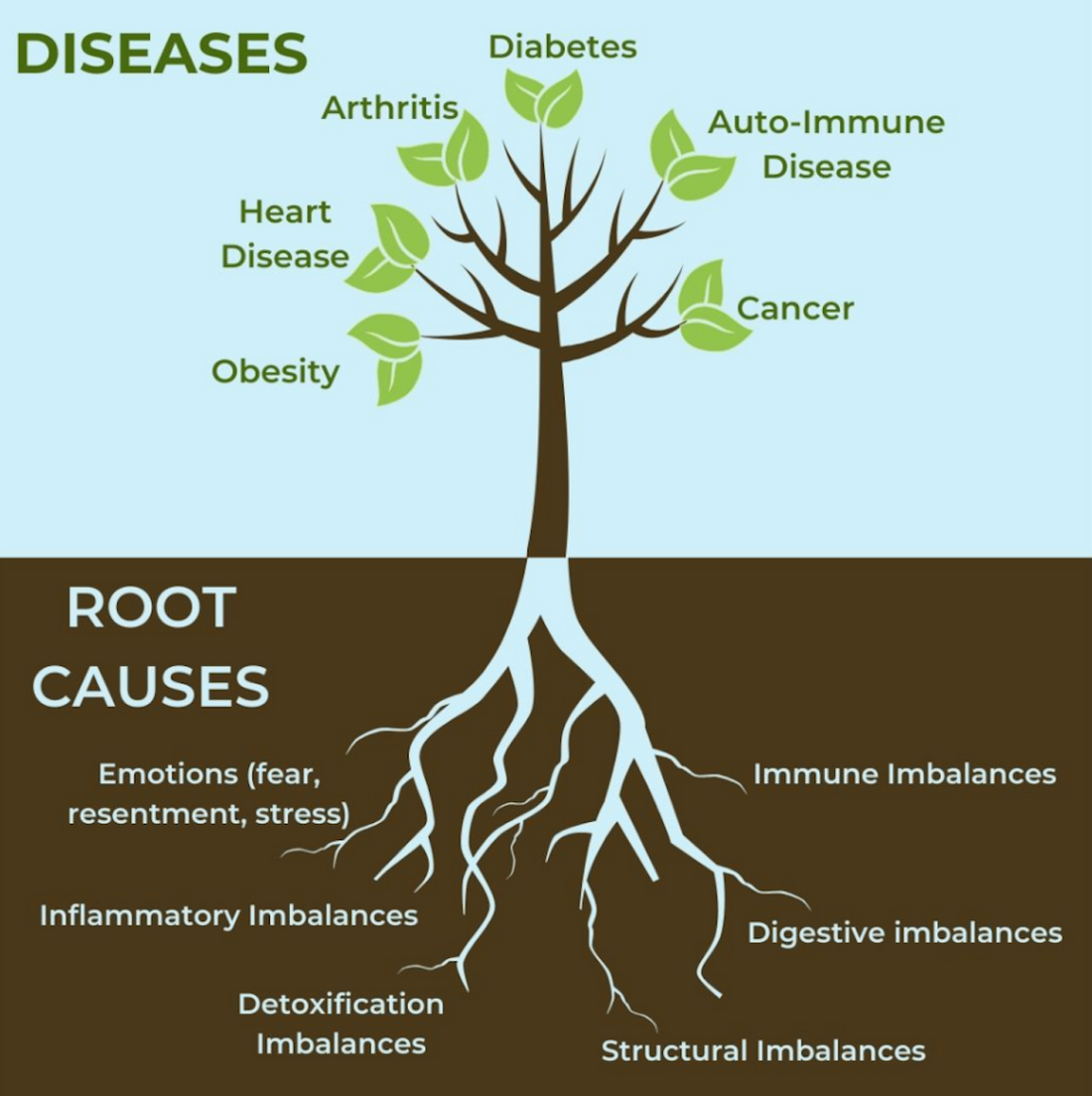
What is Functional Medicine | Organic Pharmer
Share
What is Functional Medicine?
Functional medicine is a holistic approach to healthcare that focuses on identifying and addressing the root cause of disease. Rather than just treating the symptoms, functional medicine providers use a systems biology perspective to understand how different factors, such as nutrition, stress, genetics, environment, and lifestyle, affect the functioning of the body and its organs. Functional medicine aims to restore health and prevent chronic disease by creating a personalized plan for each patient that addresses their unique needs and triggers.

With the aim to uncover why the body is not functioning properly a functional medicine expert is like a medical detective gathering all the clues of your:
- Past: family history (including where you grew up, your family situation), traumatic events, health history (including symptoms, diagnosis and treatment) etc.
- Present: your environment and potential toxins in your community, social life, stress level, relationships, diet, workout regimen, sleep habits and symptoms, etc.
- We then determine your specific treatment plan which focuses on treating the cause of your symptoms, such as:
- repairing healthy gut flora and digestive function;
- supporting detoxification processes;
- repairing immune function and treating inflammation
- replenishing nutrient deficiencies
- rebalancing and supporting hormones
To accomplish these goals, the Functional Medicine approach integrates the (sometimes) need for prescription medications, with nutrition, botanical medicines, supplements, detoxification programs, stress-management techniques and exercise, among others. A fusion of western principles and eastern principles through a balancing act of personalized medicine.
Functional medicine clinics, doctors, and other professionals typically will work with your primary care doctor, internist, gynecologist, or specialist to design an individualized health program that is enhanced by their recommendations for diet, nutrition, functional testing, and stress reduction.
Dr. Susan Blum explains the difference between conventional medicine and functional medicine.

Functional medicine can help you achieve optimal health and wellness by addressing the root causes of your chronic conditions and empowering you to take charge of your own health.
One of the tools used by functional medicine practitioners is the Elimination Diet. This is the gold standard for identifying food sensitivities. The Elimination Diet is designed to clear the body of foods and chemicals that may be creating sensitivities or allergic responses in the body, to support the microbiome, reduce inflammation, and increase phytonutrient intake. For people with suspected food sensitivities, the Elimination Diet can aid in evaluation and treatment, leading to greater long-term health. Navigating an Elimination Diet can be challenging that's why all of our products at Organic Pharmer are elimination diet approved. This is just one of many tools used by functional medicine doctors for the prevention and reversal of chronic disease.
You may benefit from seeing a functional medicine doctor if you have a complex or chronic condition that has not been resolved by conventional medicine, or if you want to prevent or reverse chronic diseases by optimizing your health and wellness. Some examples of conditions that functional medicine can help with are autoimmune diseases, adrenal fatigue, hormonal imbalances, digestive disorders, metabolic syndrome, allergies, chronic fatigue, and mood disorders.
To find a functional medicine practitioner near you, you can visit the Institute for Functional Medicine (IFM) which is a leading organization in this field. You can also ask your primary care provider for a referral or recommendation.
All of our programs were designed by Dr. Susan Blum for optimal healing meeting functional medicine standards. Try a functional cleanse as a part of your healing plan.
